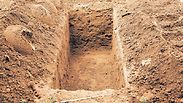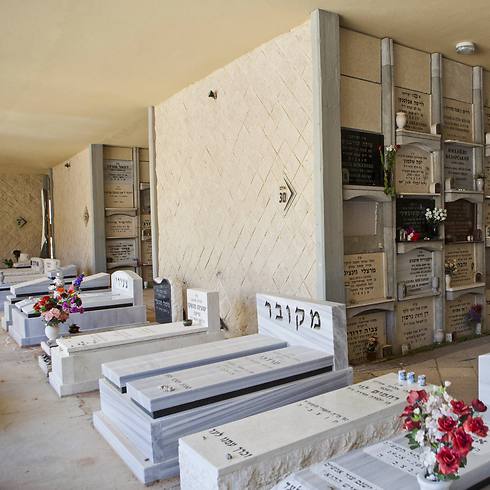
A lone grave in the desert
How can you argue with a rabbi who looks you in the eye and tells you that your deceased mother was not Jewish?
He and his wife had been living in Israel for more than 20 years, in a town in the south. Seven years ago, his wife was diagnosed with lymphoma. At the time, they gave her three months, but miraculously she lived for seven years, and not for one minute did she stop volunteering, helping others. She had a very strong sense of justice and everyone knew her in this small place.
Both husband and wife were born as Christians. They converted many years ago, purposely choosing a Conservative conversion ("Orthodoxy is too stagnant and Reform has gone too far").
They are registered as Jews in the Ministry of Interior, but over the past 48 hours, it has been made clear to him that his wife cannot not be buried here in their small town because the local rabbi refuses to allow it. She is not Jewish, he ruled.
The man is pensive. This was not the first slap in his face. He received the first one in his synagogue a little less than a year ago. The Conservative minyan (quorum) in his town meets only once a month, so on the other Sabbaths he went to the Orthodox synagogue.
It was important for him to pray in a minyan. He had been going to this house of prayer for more than 10 years. He had become a member of the congregation. The rabbi knew him and knew his story. He understood that this man was a full-fledged Jew.
But after the arrival of the new rabbi, the rules changed. The man was no longer called up to the Torah. You can come to the synagogue, the rabbi told him, but you cannot be counted as part of the minyan.
The man swallowed his pride and continued to attend services there. He was hurt mainly by the congregation’s members, not the rabbi; hurt that they ignored him when they took turns being the gabbai (a person who assists in the running of synagogue services).
He has loved the prayers since childhood. Only after he converted did he realize that he already knew the evening prayers by heart. And he understood why. When he was a child, his parents hid a Jewish family in their attic. In the evening they would close the windows and shutters, and allow the family to enter the living room. The father would pray every evening. The prayer, the melody, the words, became etched in his mind and in his heart.

A few minutes before it was time to go to the funeral, an older couple entered the house. They had come by taxi from Jerusalem. The man was wearing a skullcap and the woman’s hair was covered. She is the younger daughter of the family which was hidden in the attic.
The man and his wife had three sons. One lives in Haifa, one in the United States, and the third in Holland. A poignant combination of Israeli coarseness and Dutch manners. They are all gathered here in the living room. During the past 48 hours, they tried to help their father prevail over the powers that be. But how can you argue with a rabbi who looks you in the eye and tells you that your mother is not Jewish?
Everyone tried to get involved. Neighbors, friends, but even the mayor was unable to change the rabbi’s ruling. He is the official local rabbi, the ultimate power. The cemetery is the territory of the religious council and under his authority. Only he holds the reins.
The mayor wouldn’t give up. Toward evening, at the open gravesite, he asked if he could say a few words.
He took out a small, folded handwritten note: "Every human being is entitled to respect, and the right to be buried is an integral part of this entitlement. Therefore I decided, by virtue of my moral responsibility, to establish an alternative civilian cemetery. Our Torah's 'ways are ways of pleasantness, and all its paths are peace,' and Israel is a Jewish and democratic state.
"Your wife," the mayor turned to the man, "who threw in her lot with the Jewish people, clinging to its God, and its land, is an exemplary person who reminds us all of what is written in the Book of Ruth: 'Your people are my people, your God is my God, where you die, I shall die, and there will I be buried.'"
When he was elected mayor in the most recent elections, he could not have imagined that he would have to deal with weighty issues of religion and state. But when he was faced with such a problem, he knew that he had to do the right thing. It happened on his watch.
After he made his decision, he phoned the woman’s sons. "Your mother will be buried here no matter what," he told them. And he meant it.
Hundreds of people came to the funeral, to the lone grave in a rocky, barren, plot of desert land, the first one in the civilian cemetery that the mayor had ordered set up that very morning.
The desert wind whistled, dust got into people's eyes. That may also be the reason why everyone cried.
Yizhar Hess is the director- general of the Masorti Movement in Israel.










